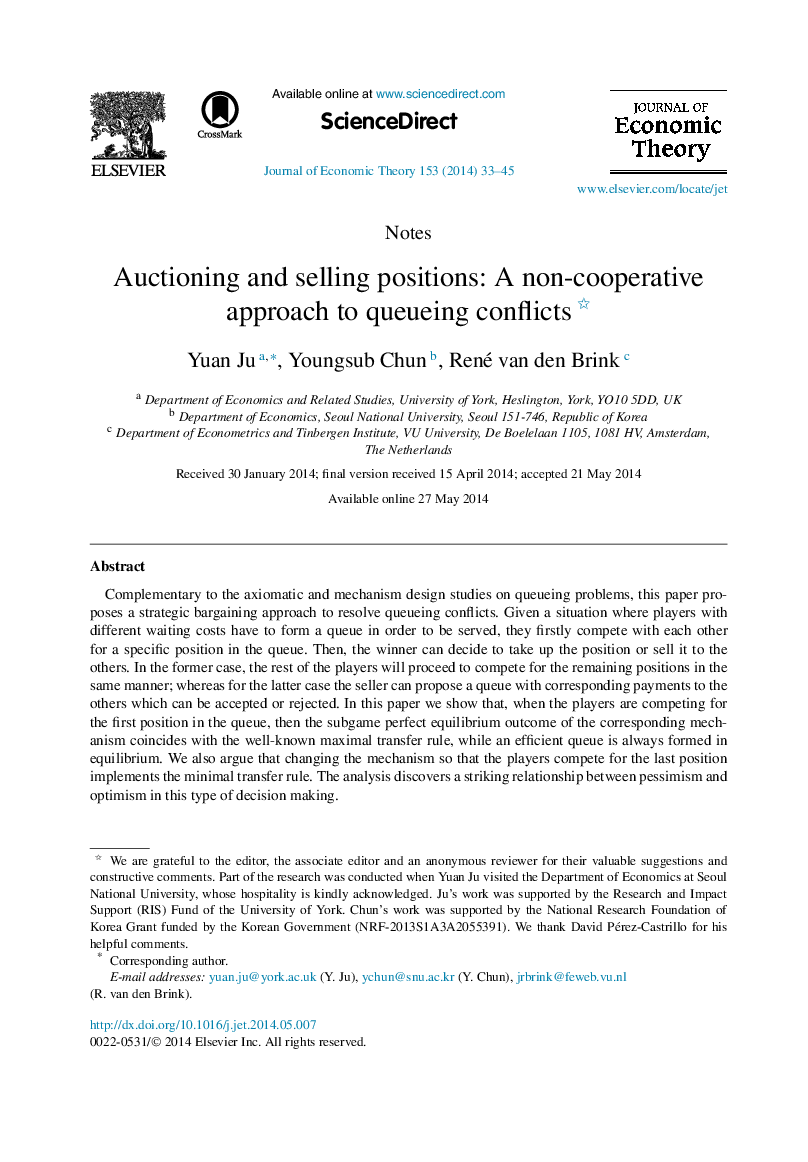| Article ID | Journal | Published Year | Pages | File Type |
|---|---|---|---|---|
| 956653 | Journal of Economic Theory | 2014 | 13 Pages |
Complementary to the axiomatic and mechanism design studies on queueing problems, this paper proposes a strategic bargaining approach to resolve queueing conflicts. Given a situation where players with different waiting costs have to form a queue in order to be served, they firstly compete with each other for a specific position in the queue. Then, the winner can decide to take up the position or sell it to the others. In the former case, the rest of the players will proceed to compete for the remaining positions in the same manner; whereas for the latter case the seller can propose a queue with corresponding payments to the others which can be accepted or rejected. In this paper we show that, when the players are competing for the first position in the queue, then the subgame perfect equilibrium outcome of the corresponding mechanism coincides with the well-known maximal transfer rule, while an efficient queue is always formed in equilibrium. We also argue that changing the mechanism so that the players compete for the last position implements the minimal transfer rule. The analysis discovers a striking relationship between pessimism and optimism in this type of decision making.
